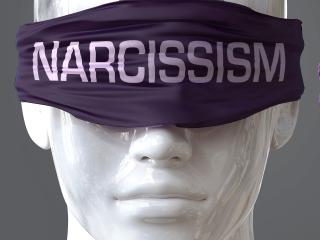The courtroom as a stage for protest in times of crisis
An increasing number of Dutch entrepreneurs go to court, because the corona measures are harming their businesses. What are their chances of winning? And to what extent is the government responsible for the plight of entrepreneurs in times of crisis? Tilburg University Magazine asked Professor of Administrative Law Jurgen de Poorter.
What is the government’s responsibility towards entrepreneurs in this time of crisis?
In a sense, the government’s legal responsibility towards entrepreneurs is limited. The COVID-19 pandemic has compelled the government to impose far-reaching measures an effort to control the outbreak. These measures have major financial consequences for the entrepreneurs in our country, but that does not make these measures unlawful.
This does not change the fact that even lawful government action can have very real (and substantial) harmful effects. In some cases the government is obliged to pay compensation for damage someone suffered as a result of government action that in itself was lawful. That is called compensation for loss resulting from administrative acts (nadeelcompensatie). An example of such compensation is the compensation in damages awarded to an importer of beef who suffered financial loss as a result of an import ban that was imposed because of an outbreak of mad cow disease.
Tall order for entrepreneurs
However, in the case of damage suffered through the government’s corona measures, the crucial question is whether the requirement of ‘having been hit disproportionately hard’ has been met. An entrepreneur who seeks compensation for loss resulting from administrative acts must have been hit disproportionately harder than other entrepreneurs in a similar situation. For hospitality entrepreneurs, to give one example, this will be a tall order. To what extent is the damage suffered by a hospitality entrepreneur a great deal worse than that suffered by other hospitality entrepreneurs that had to close for business, too? Also, decisions in cases concerning this type of compensation in principle ignore differences in financial strength between entrepreneurs.
So even though the government’s legal responsibility towards entrepreneurs is limited, the government does have regard for the interests of entrepreneurs in this time of crisis. For example, to dampen the economic effects of the corona crisis, the government has issued the Temporary Emergency Bridging Measure for Sustained Employment (NOW). This measure offers reimbursement of employers’ wage costs in an effort to prevent loss of jobs.* At the same time, the wage bill is but one component of the damage entrepreneurs suffer at the hands of the pandemic.
What other legal options do entrepreneurs have?
We do see more entrepreneurs going to court now, demanding that they be allowed to reopen their business. For instance, Koninklijke Horeca Nederland (KHN), the largest organization representing hospitality businesses in the Netherlands, has recently announced that it is preparing a case against the State with a view to reopening businesses and getting damages. Market vendors and shopkeepers have followed suit. Incidentally, another factor for entrepreneurs in the hospitality sector is that they believe they have been more adversely affected by the COVID-19 measures than other industries. These lawsuits are about the question of whether the measures taken by the government are unlawful.
Cautious courts
Given the judgment of the Hague Court of Appeal Den Haag in the case on the curfew, I do not consider the claim of KHN to be very promising. What is striking about this judgment is that the courts are reluctant to intervene in public policy, especially in crisis situations such as this one. In preliminary relief proceedings, the District Court was particularly critical about the curfew measures, not only because the legal basis was allegedly wrong (are measures based on the Civil Authority Special Powers Act (Wet buitengewone bevoegdheden burgerlijk gezag) legally binding?), but also because, in the opinion of the provisional relief court, the points of the proportionality and subsidiarity of the measure had been insufficiently motivated .

Jurgen de Poorter
The threshold for entrepreneurs to successfully challenge the government’s COVID-19 measures is rather high
The Court of Appeal, however, argued that the State was entitled to follow the advice of the Outbreak Management Team (OMT) and that taking action was necessary given the risks outlined by the OMT. The Court of Appeal thus indicates that the question of what measures should be taken to fight the corona crisis and the proportionality and subsidiarity of these measures are primary issues to be decided by politicians. The civil courts – and certainly in preliminary relief proceedings – must therefore be cautious in judging the choices made by the State within the boundaries of its policy and discretionary powers. Only if it is evident that the State has made the wrong choices and it therefore could not reasonably have opted for the chosen policy, or if the State exercises a power without a legal basis in the given circumstances is there room for judicial intervention. As a result, the threshold for entrepreneurs to successfully challenge the government’s COVID-19 measures is rather high.
Is the courtroom turning into a stage for corona protests?
Despite the lack of success of the proceedings brought by Viruswaarheid, and earlier also by KHN, against the government’s COVID-19 measures, the courts seem to be increasingly perceived as a last resort for citizens and entrepreneurs who are opposed to the measures. In one sense, this is striking. Less than a year ago, we had a parliamentary ‘dikastocracy debate’ following the Urgenda climate case and the nitrogen case, in which various political parties complained emphatically that the courts were assuming too much of a political role. Since the childcare allowance affair, opinions seem to have completely reversed and the courts are expected to be more activist.
Lack of trust
It is happening increasingly more often that interest groups use legal procedures to bring about political or social changes. This is also referred to as ‘public interest litigation’. As a result, the courts are more often obliged to enter into the realm of political decision-making. What does that tell us? This seems to suggest that citizens do not always trust the government and seek a solution in court. A different aspect of that development is that we now see citizens – and in particular also self-employed workers and small entrepreneurs who suffer as a result of the COVID-19 pandemic – increasingly invoke the help of the Ombudsman in seeking leverage, because they have become entangled in a jungle of regulations.
What else can the government do?
As a lawyer, I have to exercise restraint when it comes to the economic policy pursued by the government. At the same time, I can imagine that it is vitally important for a large group of entrepreneurs that the support measures are not yet phased out, not even any time soon once the pandemic is under control. The damage done is too great.
However, from a legal perspective, something can be said about this question. The problems faced by entrepreneurs with respect to the support measures – and that is a real worry – show a striking similarity to the patterns we also saw in different affairs: it is too easy for citizens to become caught up in a jungle of rules. For instance, we see entrepreneurs who happen to fall outside the current arrangements, for example, because the reference period turned out wrong. There are also stories about self-employed people who receive special assistance from their municipality, whereby the municipality states that, in the event of bankruptcy, this assistance does not have to be paid back, but the assistance is subsequently regarded as income by the tax authorities for the purposes of income tax and benefits. As a result, citizens and entrepreneurs get caught in a different cleft stick.
Legislation without ‘pressure valves’
Recently, the final report of the Temporary Committee on Implementing Bodies, on the enforceability of policies and the human dimension in them, has been presented to the President of the House of Representatives. The direct reason for the investigation was of course the things that had gone wrong in the context of the childcare allowance. But we see the same things happening in other situations: to entrepreneurs in relation to the support measures. That citizens sometimes get stuck has many reasons, but also with too detailed legislation and with legislation that does not contain the necessary ‘pressure valves’ to deal with people falling between two stools. That is something that we as lawyers should take to heart.
* Legally, the NOW compensation is a subsidy granted to employers by the Employee Insurance Agency (UWV) on behalf of the Minister of Social Affairs and Employment. With the corona crisis showing no signs of abating, the original NOW subsidy scheme (NOW-1) has been followed by two more such schemes (NOW-2 and NOW-3). The NOW subsidy scheme is intended for employers who expect their turnover to decline by at least 20% over a period of three consecutive months. They receive a subsidy to help cover the wage costs they incur in that period, with the amount awarded depending on the percentage of the decline in turnover and the sum total of the wage bill. For example, if the expected decline in turnover is 100%, the employer is eligible for a subsidy that amounts to 90% of the full wage bill.




